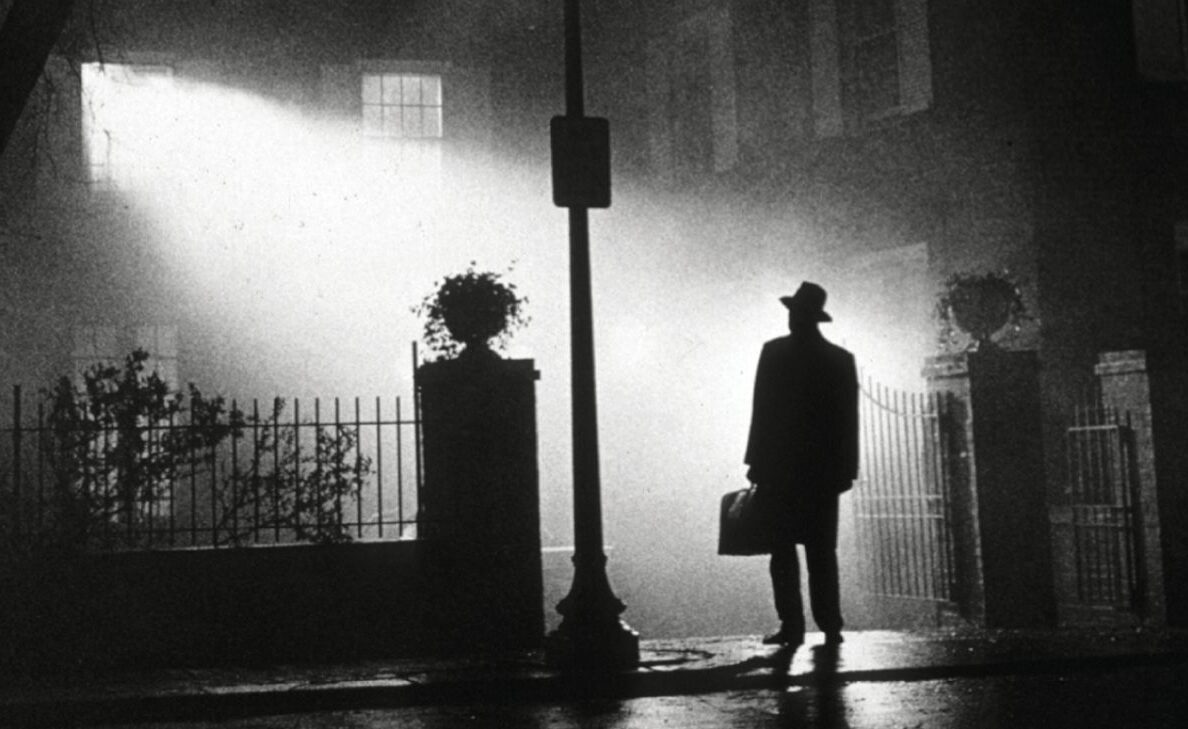From launching one of the most profitable horror movies of all time, to a pair of controversial prequels, it makes sense to want to revisit the entire Exorcist franchise as it stands.
This means covering and ranking every Exorcist movie, six in all, from worst to best. To be sure, we’re talking about one of the strangest, and most arguably unnecessary franchises in film history. As far as many fans are concerned, nothing even comes close to the juggernaut success and quality of the 1973 original.
We’re not going to go quite that far here, as most of the entries in the series are actually pretty good. Even the ones that aren’t, with one film in particular being particularly notorious as one of the worst sequels of all time, still carry the noble distinction of being generally entertaining.
While it’s debatable that the world needs another collection of movies set in this universe, there is something to this ongoing narrative concerning an unending showdown with the forces of evil that keeps us coming back again and again.
With that in mind, let’s rank the Exorcist movies from worst to best.
The Exorcist Movies Ranked
6. Exorcist: The Beginning (2004)
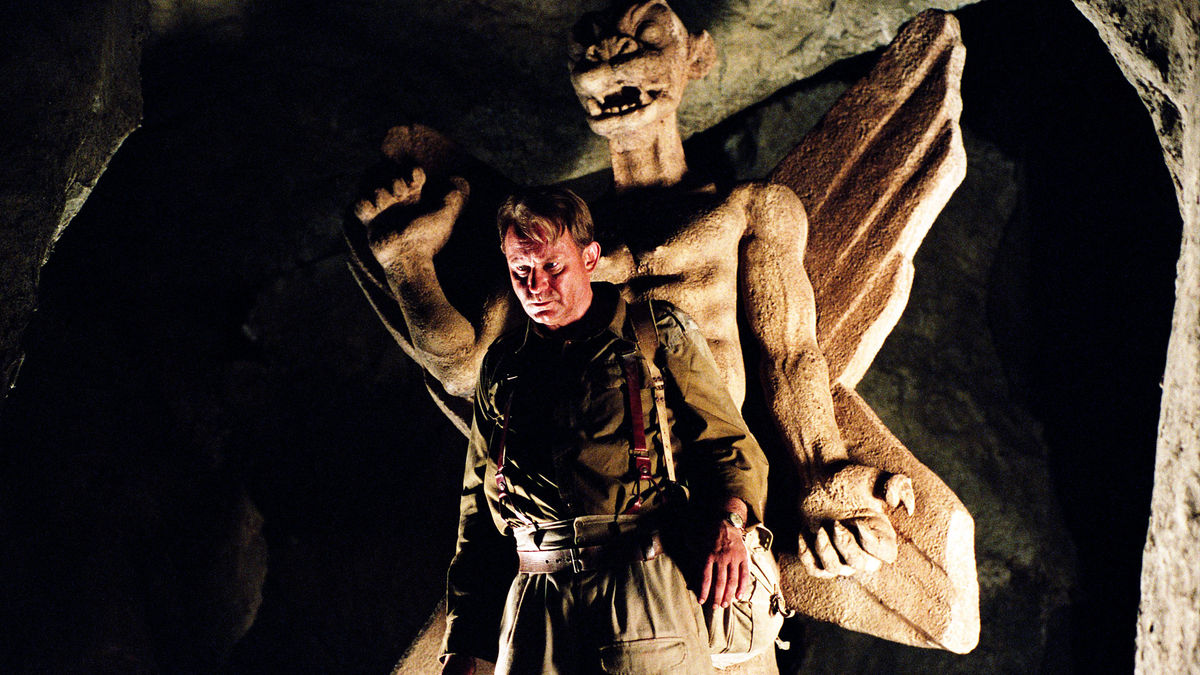
Director: Renny Harlin
Of all the horror franchises you could ever binge, rank, or study, only The Exorcist has an entry which exists entirely because of the studio thinking they had made a ghastly mistake in hiring Paul Schrader to helm the project. The writer of Taxi Driver apparently didn’t deliver the kind of movie everyone had been expecting.
That film was shelved and a new director, Renny Harlin, was hired. The same basic premise of Father Merrin (played in the 1973 film by Max Von Sydow, but here played quite well by Stellan Skarsgård) going up against the demon Pazuzu for the very first time was kept intact. New material was shot, and some different casting decisions were made.
The result is a film that’s steeped in everything you would generally expect from an Exorcist film — that is, if you only considered The Exorcist for its more visceral horror elements. There are some good horror movie visuals here, but there just isn’t much else.
Virtually everything about The Beginning feels like an extremely shallow interpretation of the novel by William Peter Blatty. While that isn’t really the end of the world, there is something depressingly dumb about how the story unfolds. A disillusioned Merrin, working as an archeologist and not a priest, is forced to confront his past to save another human being’s soul in the present. It’s a solid premise for a prequel.
As we’re going to see later with Dominion, which is generally regarded as the better prequel of the two, it is a premise that can be told reasonably well.
So, what goes wrong here?
A lot of it really does come down to Renny Harlin, who was not a good choice for this material. A director who is strong with visuals and a certain sense of humor, those qualities do not work in a universe like this. Harlin directed, among other pretty good movies, A Nightmare on Elm Street 4. You’re not going to watch that movie and think at any point that the tone and energy of that film would also work for The Exorcist. Everything here, despite good performances by James D’Arcy and Izabella Scorupco, falls flat.
Harlin tries to make things exciting. Sometimes, particularly in the end, he succeeds. There just isn’t much else going on here, and that’s a particularly glaring flaw for a series with as much depth and potential for depth as this one.
By no means should you skip this one. It’s at least interesting, but it also feels dangerously undernourished for anything of even the slightest emotional weight.
Still, if you’re going to actually blame anyone, look to the studio for their cowardly decision to shelve Schrader, and then hire someone who should not have been allowed to work with this material in the first place.
5. The Exorcist II: The Heretic (1977)

Director: John Boorman
Is The Exorcist II: The Heretic really one of the worst movies of all time?
No, not even close.
In very certain and sometimes unintentional ways, this notorious follow-up is actually quite a bit of fun. Set several years after the first film, with a young adult Regan MacNeil getting spiritually tussled once more by the demons of Hell, there are also moments in The Heretic that get us pretty close to the concept of a good movie.
However, at the end of the day, yes, this movie is indeed pretty damn bad. It barely functions as a sequel, despite some very clear connections to the first movie. It takes the concepts of generational trauma and hypnotism and turns them into what really does feel like the collective ravings of a group of people who have just done several thousands of pounds of cocaine.
Worse yet, many of the performances in the film are either completely detached or laughably bad. Despite the presence of an actor as good as Oscar winner Louise Fletcher, and also in spite of an appearance by Richard Burton, one of the giants of stage and screen, no one seems to ever give a performance which suggests they actually know what’s going on.
Fletcher, for example, has some really good scenes with Linda Blair (who does her best with this convoluted material) as Regan. Their good on-screen chemistry is clear, but that’s obviously not enough to save the movie.
The same cannot be said for Richard Burton, who is clearly here to pick up a paycheck. Despite being the one who drives much of this plot, which takes us all over the world, and deeper into the history of Father Merrin (a returning Max Von Sydow), Dick rarely gives an indication that he is actively aware of the movie he’s in during one of his worst film performances.
At the same time, as mentioned before, The Exorcist II: The Heretic can also be a lot of fun. The history of Pazuzu, which includes at least one nice scene with James Earl Jones, is in of itself fascinating in the way it’s explored here. Things often get ridiculous, but it’s possible to separate that from the ideas just enough to appreciate what everyone tried to do here.
While The Heretic is a deeply flawed movie, the massive budget and ambition to top the original leaves us with something that is at least entertaining. You may even call it admirable.
4. Dominion: Prequel to the Exorcist (2005)
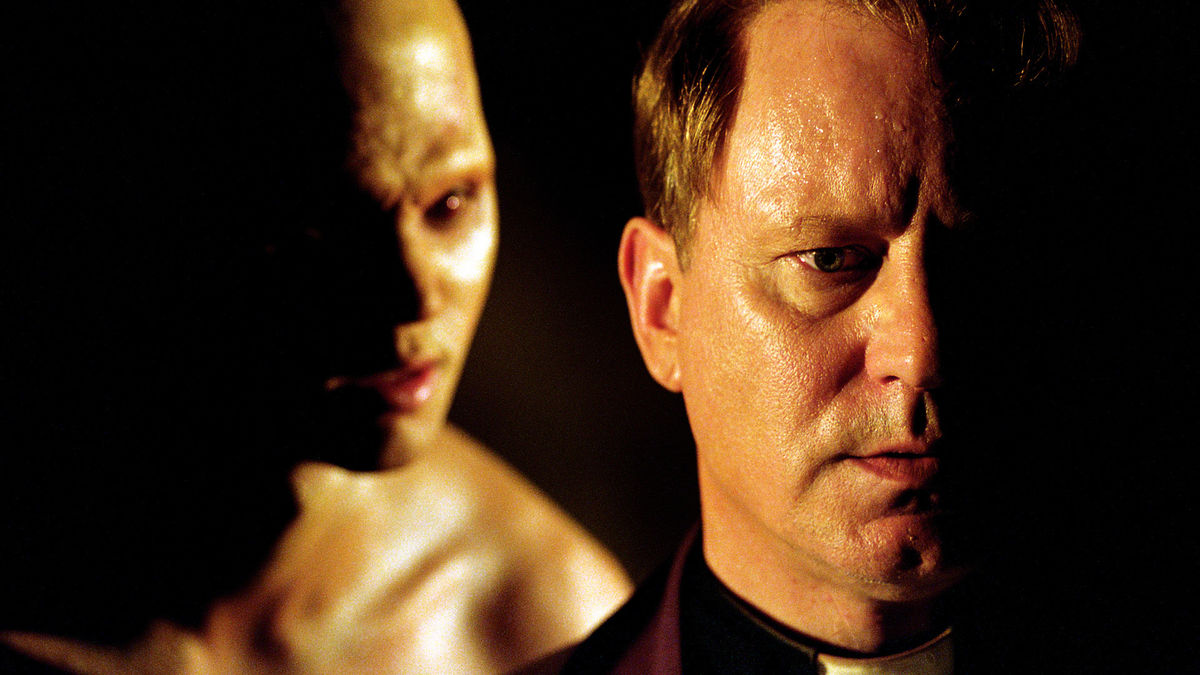
Director: Paul Schrader
Eventually released to counter the terrible reviews Exorcist: The Beginning received the year prior, Dominion: Prequel to the Exorcist is overall a much better movie. While it may falter in some of the essentials of an Exorcist movie, particularly in the somewhat anticlimactic conclusion, the psychological horror inherent in this franchise is taken to some fairly interesting places.
Drawing from the same basic premise of a younger Father Merrin (once again played with conviction and depth by Stellan Skarsgård) confronting personal demons and literal ones in East Africa, Dominion spends a lot of its time dealing with faith. That makes sense with someone like Paul Schrader, whose work is at least informed by his religious upbringing and background.
However, at times, this element seems more important to Schrader than making a horror movie. This is a much slower-paced film than anything on this list. That generally works fine, but occasionally, things can start to drag. The performances, atmosphere, and overall depiction of evil as a truly malevolent, conscious force all carry this film over this occasional thought.
Dominion: Prequel to the Exorcist is ultimately the best continuation of this story that doesn’t involve author William Peter Blatty in some form or fashion. I couldn’t say how beholden to the original Schrader was, but he clearly showcases an at-times dazzling, terrifying interest in some of the concepts and themes Blatty set forth. The tone of this film can feel highly different to any other film in the series, including the other version of the same story, but this works to Dominion’s favor more often than not.
Dominion: Prequel to the Exorcist makes a good case for prequels to wildly popular, established stories. Father Merrin is one of the most compelling and essential human components to this story that is largely built around a very detailed-yet-somehow-still-vague depiction of the unknown. Exorcist: The Beginning fails to add anything interesting. The same cannot be said of Dominion, which enhances the original narrative to a winning degree.
3. The Ninth Configuration (1980)
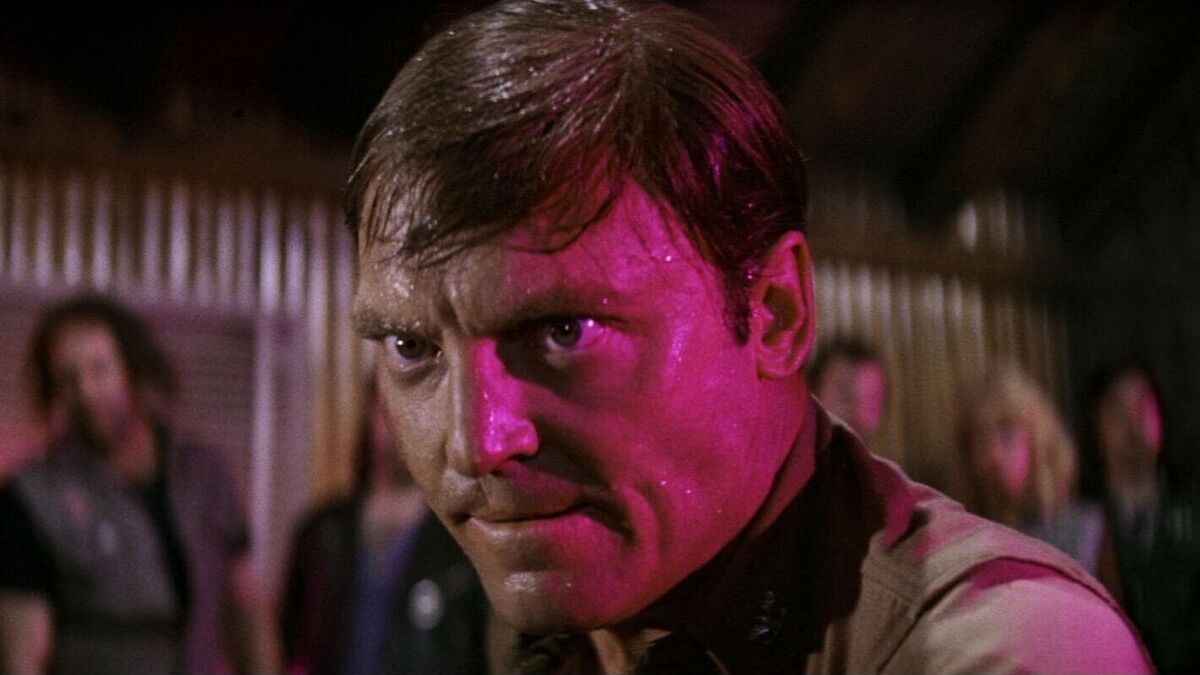
Director: William Peter Blatty
Considered by Blatty himself to be the 2nd chapter in the “true” Exorcist trilogy, also known as part of Blatty’s Faith Trilogy, The Ninth Configuration seemingly and just barely holds an odd place among the other films on this list. There is no exorcism, there is no Regan, and there is no direct contact with the demon Pazuzu. Only a character from The Exorcist, an astronaut (played in the first film by Dick Callinan), concretely ties these stories together.
So, where does The Ninth Configuration fit in with the rest of The Exorcist? In a ranking of every Exorcist movie from worst to best, what do you make of the story of a military psychiatrist (a stellar Stacy Keach) becoming too ingrained in an already eccentric psychiatric hospital in an isolated castle?
As you’ll find from watching this film, which is equal parts delirious gallows comedy and an emotionally crushing mediation on faith, humanity, and madness, The Ninth Configuration is very much in step with the other books/films Blatty has crafted in this universe. What makes The Ninth Configuration different, and therefore a little difficult to appreciate in the context of the rest of these movies, is how it explores those themes.
Obviously, topics like God abound in these films. However, The Ninth Configuration sets about these discussions in a much franker and character-driven fashion. There is horror in this film, in great amounts, but much of the ground this movie covers is its own thing, only using more graphic or psychologically distressing jolts to system sparingly. This can make for a strange viewing for anyone who is watching The Ninth Configuration solely in the context of an Exorcist sequel.
While it’s not really a sequel, The Ninth Configuration, strengthened by performances by Scott Wilson, Jason Miller, Ed Flanders, Moses Gunn, and several others, is still a riveting expansion of the world in which characters like Regan McNeil and Captain Billy Cutshaw coexist. This is a scary, feverish horror film, and it deserves to be here as much as the rest do.
2. The Exorcist III (1990)
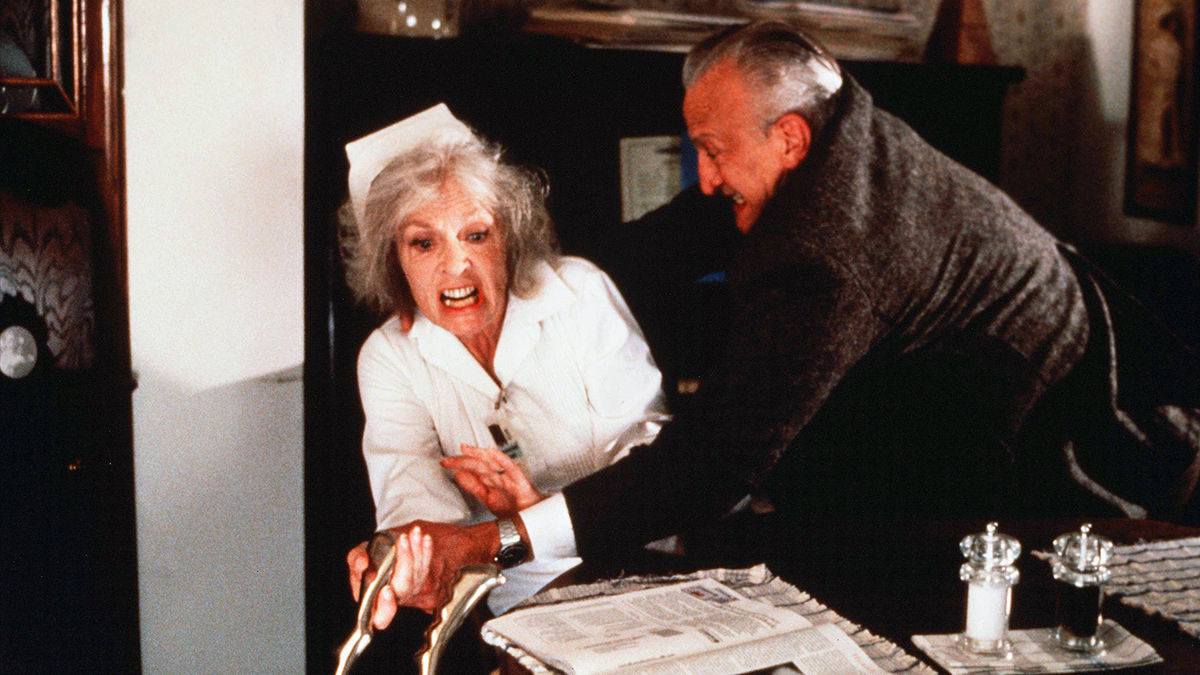
Director: William Peter Blatty
If The Exorcist III is going to be second on this list of the best Exorcist movies, let it at least be said that it’s a very close second.
In fact, as far as this writer is personally concerned, The Exorcist III is the most enjoyable one. Based on William Peter Blatty’s sequel novel Legion, The Exorcist III ignores The Heretic and resumes the story of the fallout from the infamous exorcism of Regan McNeil, with the focus being put on police lieutenant Kinderman (played here by George C. Scott, as previous actor Lee J. Cobb had died).
Kinderman still mourns the loss of his friend Father Damian Karras (although this friendship is given considerably more weight than how it was actually depicted in the first film). Meanwhile, a serial killer with an M.O. eerily similar to that of one of the most infamous in the nation’s history is picking off people seemingly at random. Blatty connects this story to the first Exorcist quite nicely, but also finds a number of ways to distinguish III. The overall atmosphere of this film, which functions as an off-kilter fever dream even in the least threatening scenes, is a big part of that.
The Exorcist III depicts one of the most frightening approaches to reality ever created for a horror film, ever. The afterlife is unfathomable in its indifference. Deep nihilism and cynicism seem to run through much of this film, although you wouldn’t go so far as to say the movie is completely devoid of hope. Even in the light of day, this movie exists in a truly dangerous world of chaos, the whims of demons, and the possible and ever-terrifying indifference of God. There is a lot going on in this movie.
Watching Kinderman struggle to understand what’s going on around him remains deeply engrossing, with George C. Scott’s performance giving this movie a profound, very human anchor amidst so many bleak revelations and hints about this world and the next one. His level of confusion enters an entirely new stratosphere of weirdness when Father Karras (a returning Jason Miller), who very much died at the end The Exorcist, seemingly shows back up. This is where Brad Dourif also joins the proceedings, with a performance that might just be the scariest of his entire career.
Yes, that includes Child’s Play.
The Exorcist III is one of the best horror movies of all time. It is also one of the best sequels of all time. The only point in which it falters is when it has to accommodate an actual exorcism scene, which was forced on Blatty by the studio. Nicol Williamson is fun to see in what is essentially the Max Von Sydow role, but the conclusion, while fun enough, feels out of place in this film, and more than a little tacked on.
Luckily for us, a director’s cut of the movie is available on Blu-ray.
1. The Exorcist (1973)
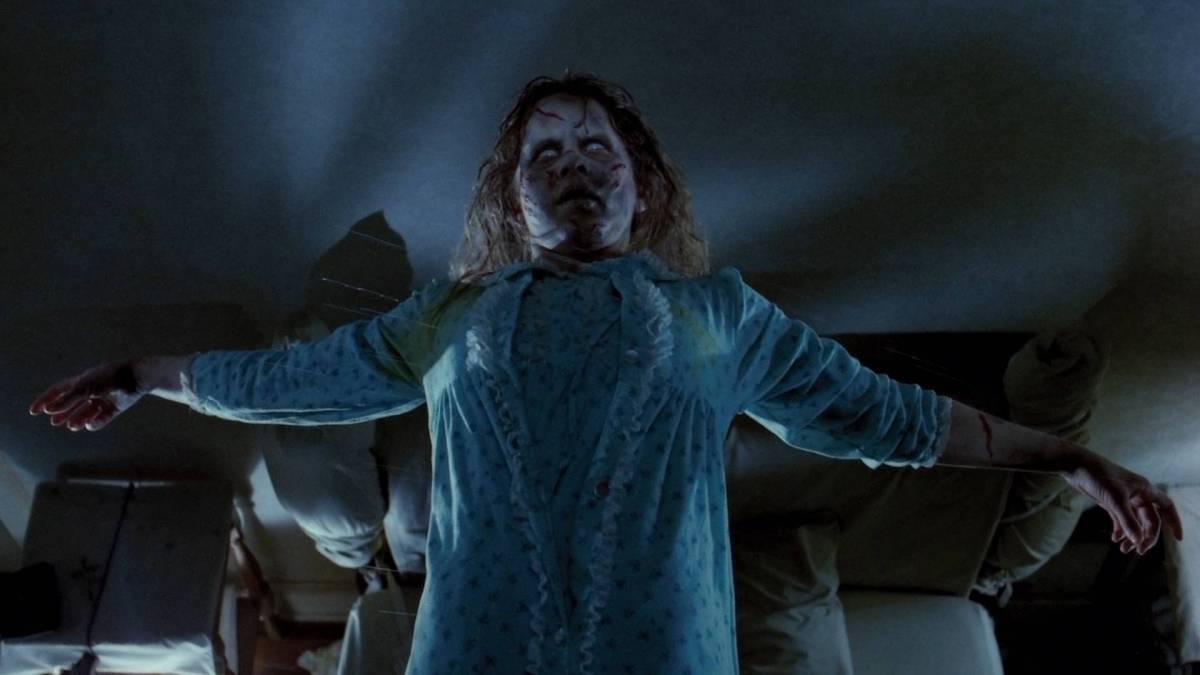
Director: William Friedkin
The Exorcist is one of the most successful horror movies ever made. Released to rave reviews, Oscar nominations, and the opportunity to become permanently ingrained in our cultural consciousness, The Exorcist made a case that true genre fans already knew: Horror could have a sizable budget and a well-known cast. It could be taken seriously by mainstream critics and general audiences. The Exorcist achieved all of this, cementing director William Friedkin as one of the most unique talents in filmmaking, and making popular the idea that demons are real, and have a vested interest in a world in which God is sometimes seemingly nowhere to be found.
The Exorcist, the story of a young girl (the inimitable Linda Blair) who becomes possessed by a savage, cruel, and very ancient demon, changed the horror landscape for a good long time in the wake of its release. It led to dozens of ripoffs, the inevitable sequels, a TV series, and a new state of horror film in which lower budget studios like Hammer and Amicus struggled to survive.
Of course, some will inevitably believe a horror movie of this stature is overrated, but let’s ignore those people. The Exorcist may not have a ton of jump scares or gore. What it does have is a ludicrous concept played straight, shifting in all the right places to give the film purpose, strong performances. This includes Jason Miller and Ellen Burstyn, to Max Von Sydow, Kitty Winn, and the iconic voice of Mercedes McCambridge as Pazuzu. The Exorcist uses these performances to establish a depiction of life after death that creates more unsettling questions than pleasing answers.
The Exorcist is horror filmmaking on an epic scale, with a level of ambition rarely given to these films, and it’s pleasing to see The Exorcist succeed on this level. Horror can be memorable, life-affirming, or just fun on any budget. What makes this film so endlessly impressive is how it doesn’t drown in its various threads, including Regan’s possession, Father Karras’ crisis of faith, and the overwhelming power of good that Max Von Sydow represents as Father Merrin. All of this, and the movie even has time for the hell Ellen Burstyn goes through as Regan’s mother.
This is a movie very keenly interested in character, but the horror and supernatural elements of this film are not sacrificed for those things. If anything, the overall tone and reach of The Exorcist grounds this fantastical story in a way that contributes to its frightening nature.
Something about the way The Exorcist is carried out by the talents of such individuals as William Friedkin and William Peter Blatty, as well as those who worked on the music, makeup, set design, and editing, all conspires to make a movie that manages to hit every mark.
As far as this ranking of The Exorcist franchise is concerned, the 1973 hit more than deserves its reputation.
READ NEXT: Ranking Every Psycho Movie from Worst to Best
Some of the coverage you find on Cultured Vultures contains affiliate links, which provide us with small commissions based on purchases made from visiting our site.
